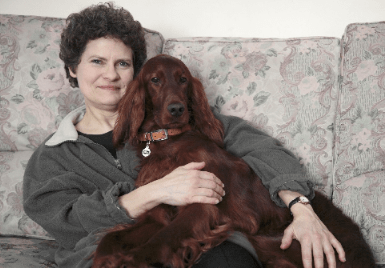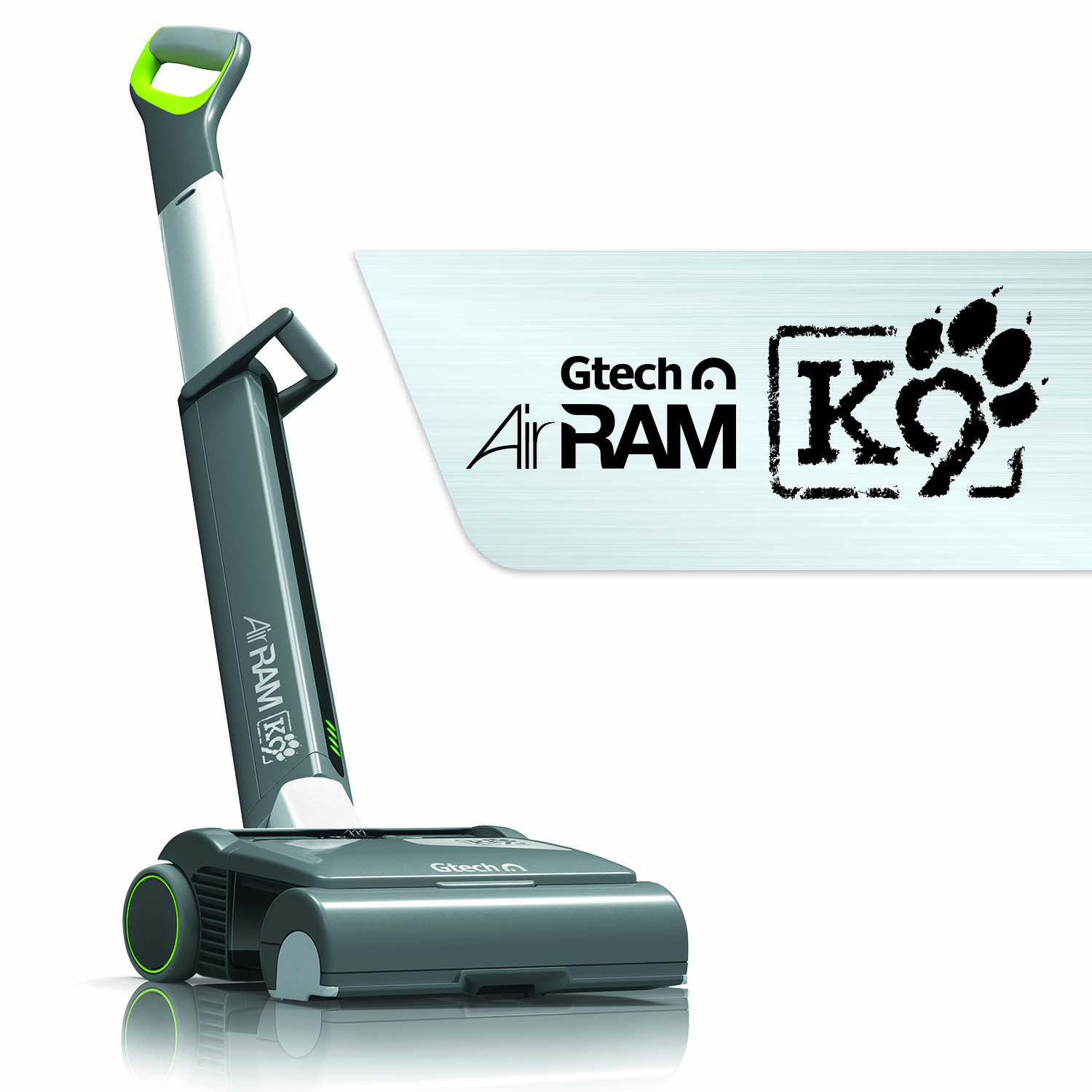A woman who has dedicated her working life to animal welfare has started work as the RSPCA’s Chief Scientific Officer along with her rescue dog Bridie.
Dr Julia Wrathall has worked for the RSPCA for more than two decades, including most recently as the head of the charity’s farm animals department for 12 years.
Her new appointment sees her leading the RSPCA’s four science teams at the charity’s headquarters near Horsham, West Sussex, accompanied by her Irish Setter Bridie.
She said: “I feel both excited and privileged to be taking on this new role, heading up such an outstanding group of staff.”

Julia has a lifelong association with and love of dogs. She is a dog training instructor, being a strong advocate and practitioner of positive, motivational, reward-based methods, and has recently adopted an Irish Setter from RSPCA Halifax, Huddersfield & District Animal Centre following the dog’s rehabilitation after being rescued from appalling conditions by RSPCA Inspectors.
Dr Wrathall said: “Bridie was rescued from terrible conditions but her positive nature has shone through despite the horrors of her former life. Thanks to the wonderful care and dedication of the those who rescued her and brought her back to physical and mental health, she now lives life to the full and enjoys every minute of her ‘working life’ at RSPCA HQ.
“Her friendly, happy and affectionate nature makes her a big favourite with human and canine colleagues alike.
“Having her by my side at work each day, with her unfailingly positive and upbeat approach to life, is a constant reminder both of the amazing work of our inspectors, vets, animal centre staff and volunteers, and of the extraordinary willingness of dogs to move on from past horrors and give life – and humans – a second chance. What an incredible species they are, and aren’t we lucky to have them in our lives?”
The RSPCA’s Science Group has four departments specialising in companion and farm animals, animals used in research and wildlife. This in-house expert resource was first introduced in the 1970s to help enhance the RSPCA’s knowledge and understanding of the physical and behavioural needs of different species, thereby enabling us to act as effectively as possible to improve their welfare through a scientifically informed, evidence based approach.
Julia said: “If we are to ensure that the RSPCA provides the best possible welfare advice, information and support in all areas of human interaction with animals and to the many and varied stakeholders, it is essential that we take proper account of available factual information about what the different species need in order to have a good quality of life.
“The Science Group’s role in gathering and analysing information from animal welfare science and other robust evidence sources to develop and apply practical solutions is therefore a very important aspect of the Society’s work.
“Whether we are producing fact sheets to advise the general public about the welfare of wildlife in their gardens or how to understand their dog’s behaviour, or developing welfare standards and guidance to improve the welfare of farmed livestock or animals used in research, it’s crucial that our advice is both scientifically informed but also practically achievable.”
Julia added: “I’ll be aiming to help maintain and build on the amazing work of the RSPCA Science Group both within and beyond the Society, and also to raise awareness and understanding of the existence, nature and scope of our work, not least the hands-on, practical approach we take to addressing welfare problems through applying animal welfare science in practice.
“This is a particularly exciting time for the RSPCA following the recent appointment of our new Chief Executive and I’ll be working to ensure the Science Group contributes to making this new era a positive and progressive one for animal welfare.”
In addition to their external advisory and advocacy role, the Science teams also work closely with others across the organisation, providing advice and support to the Inspectorate and animal centre staff, as well as working to help ensure that the RSPCA’s campaigns, press work and educational materials are evidence-based and focused on priority welfare issues.
Julia joined the RSPCA as a Scientific Officer in 1994 following a degree in biochemistry, a Masters in animal production and a doctorate in ruminant endocrinology. She became Head of the Farm Animals Department in 2003. During her career at the RSPCA, she has represented the Society on a number of industry, scientific and governmental committees in the UK and overseas, and overseen on-going development of the widely respected RSPCA welfare standards for farm animals which are utilised by many in the UK and beyond, and underpin the RSPCA Assured ethical food labelling assurance scheme, formerly known as Freedom Food.
Julia has also travelled on behalf of the RSPCA to various countries including France, Belgium, Croatia and Australia to provide advocacy and advice on animal welfare and forge relationships with relevant organisations and sectors to enable collaborative work to progress welfare issues
Enter your email and never miss out on receiving our best articles:








